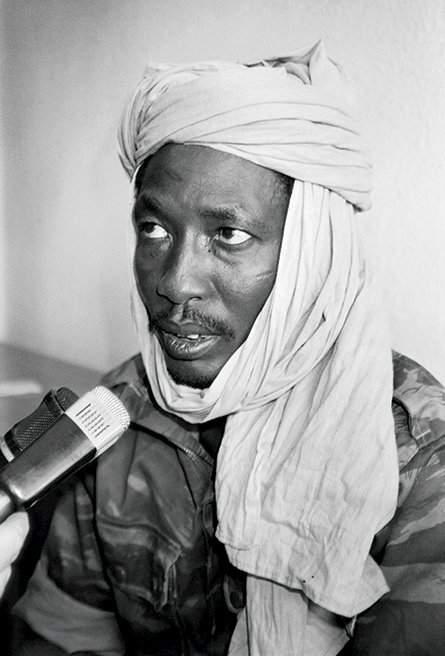
Appraising Post-Coup Political Developments
By Jonathan Powell, PhD
Responding to “Zimbabwe’s Coup: Net Gain or No Gain?,” published in the March-April 2019 edition of Military Review, a political scientist specializing in the causes and consequences of military coups disputes certain assertions by the authors of the aforementioned article and provides more detail and clarification on post-coup political environments as they related to establishment of democratic regimes.
Published by Military Review July-August 2019, pg 47
Download the PDF 
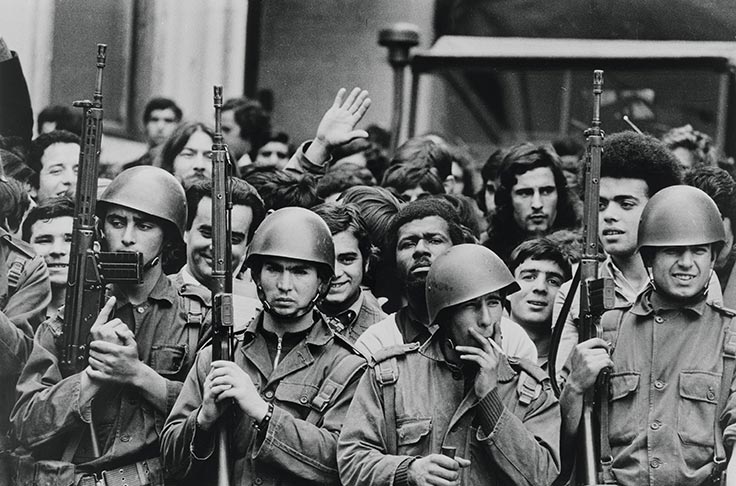
By Ozan Varol
A chapter from the author’s The Democratic Coup d’État analyzes instances of military coups conducted by establishment military forces that had the intended result of producing democracy in the nations in which the coups occurred, with some success
Published Military Review March-April 2019, pg 18
Download the PDF 
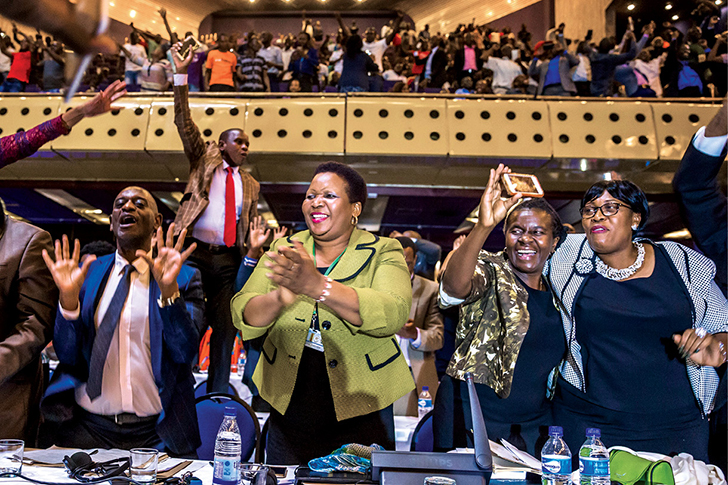
Net Gain or No Gain?
By Ambassador Linda Thomas-Greenfield, Retired Ambassador D. Bruce Wharton, Retired
Two retired members of the Senior Foreign Service of the United States provide an insightful look at the recent coup in Zimbabwe and then discuss that country’s future specifically and the efficacy of coups in general
Published Military Review March-April 2019, pg 6
Download the PDF 
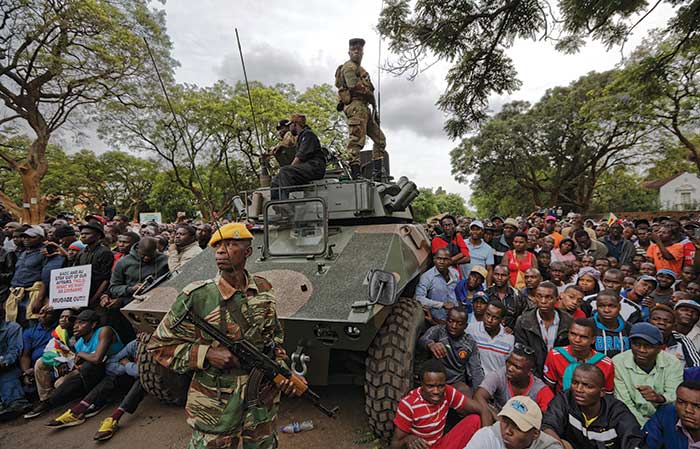
By Robert F. Baumann, PhD
A historian and educator reviews The Democratic Coup d’État by Ozan Varol, which describes how military coups can sometimes help establish democratic governments
Published by Military Review May-June 2018, pg 104
Download the PDF 
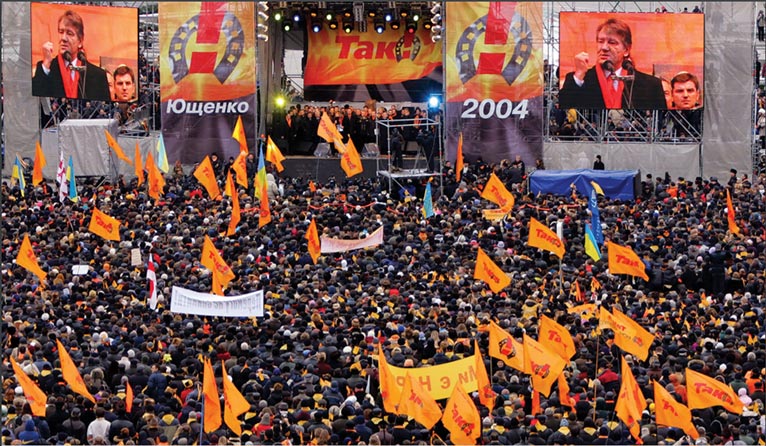
Unassailable Source of Power in Twenty-First Century Armed Conflicts
By Lt. Col. Erik A. Claessen, Belgian Army
Winner of the 2015 Gen. William E. DePuy Combined Arms Center writing competition. The author shows that popular support may be a greater source of power than military might in urban conflicts.
Published in the Military Review November-December 2015 Edition, p 8.
Download the PDF 
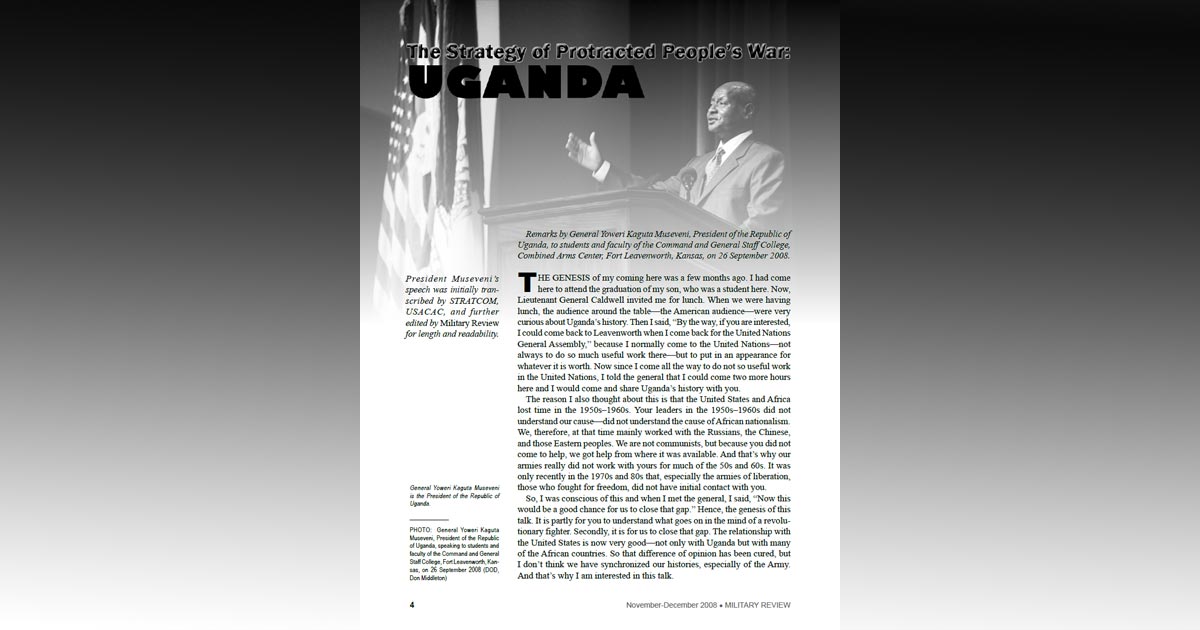
Yoweri Kaguta Museveni President of the Republic of Uganda
President Museveni presents thoughts and observations on the future of Africa and the moral factor in revolutionary warfare.
Published in the Military Review November-December 2008 Edition, p 4.
Download the PDF 
Back to Top
External Links Disclaimer
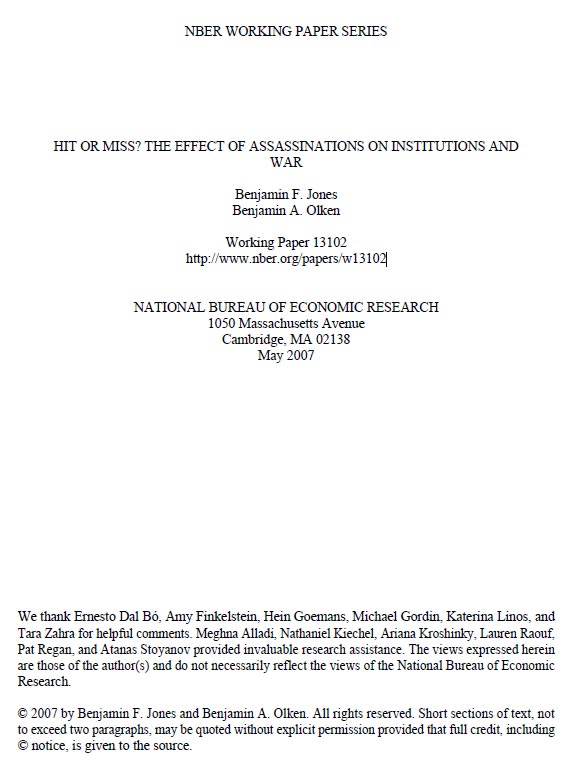
By Benjamin F. Jones, Benjamin A. Olken
Assassinations are a persistent feature of the political landscape. Using a new data set of assassination attempts on all world leaders from 1875 to 2004, we exploit inherent randomness in the success or failure of assassination attempts to identify assassination's effects. We find that, on average, successful assassinations of autocrats produce sustained moves toward democracy. We also find that assassinations affect the intensity of small-scale conflicts. The results document a contemporary source of institutional change, inform theories of conflict, and show that small sources of randomness can have a pronounced effect on history.
Published by National Bureau of Economic Research, May 2007
Download the PDF 
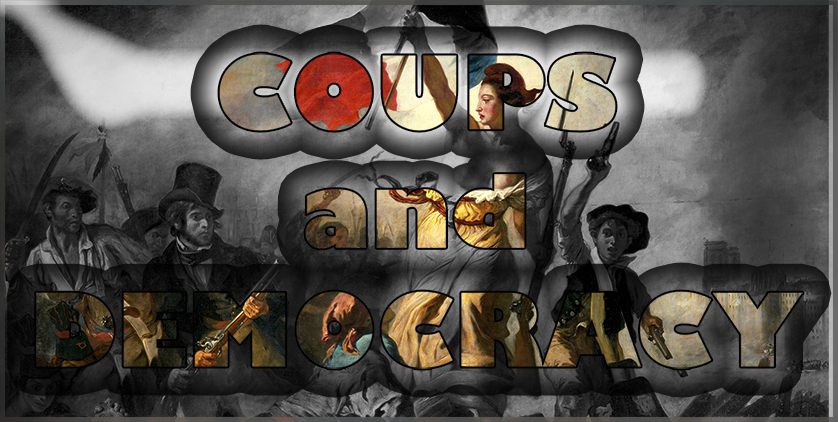
By Nikolay Marinov
Hein Goemans
This study uses new data on coups d’état and elections to document a striking development: whereas the vast majority of successful coups before 1991 installed durable rules, the majority of coups after that have been followed by competitive elections. The article argues that after the Cold War, international pressure influenced the consequences of coups. In the post-Cold War era, countries that were most dependent on Western aid were the first to embrace competitive elections after their coups. This theory also helps explain the pronounced decline in the number of coups since 1991. While the coup d’état has been (and still is) the single most important factor leading to the downfall of democratic governments, these findings indicate that the new generation of coups has been far less harmful for democracy than their historical predecessors
Published by Cambridge University Press, 28 August 2013
Download the PDF 
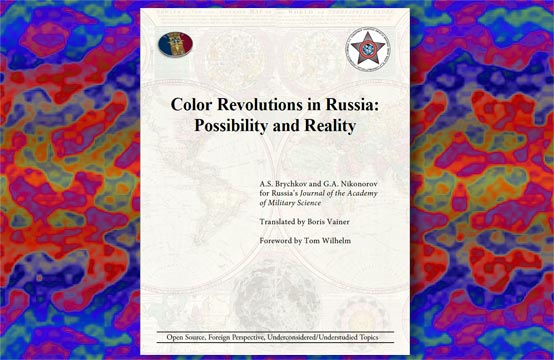
Possibility and Reality
By A.S. Brychkov and G.A. Nikonorov for Russia’s Journal of the Academy of Military Science
Translated by Boris Vainer
Foreword by Tom Wilhelm
This translation is provided in accordance with the publication requirements stated in the source: A.S. Brychkov and G.A. Nikonorov, “Color Revolutions in Russia: Possibility and Reality,” Vestnik Akademii Voennykh Nauk [Journal of the Academy of Military Sciences]
Published by FMSO Monographs, 21 March 2018.
Download the PDF 
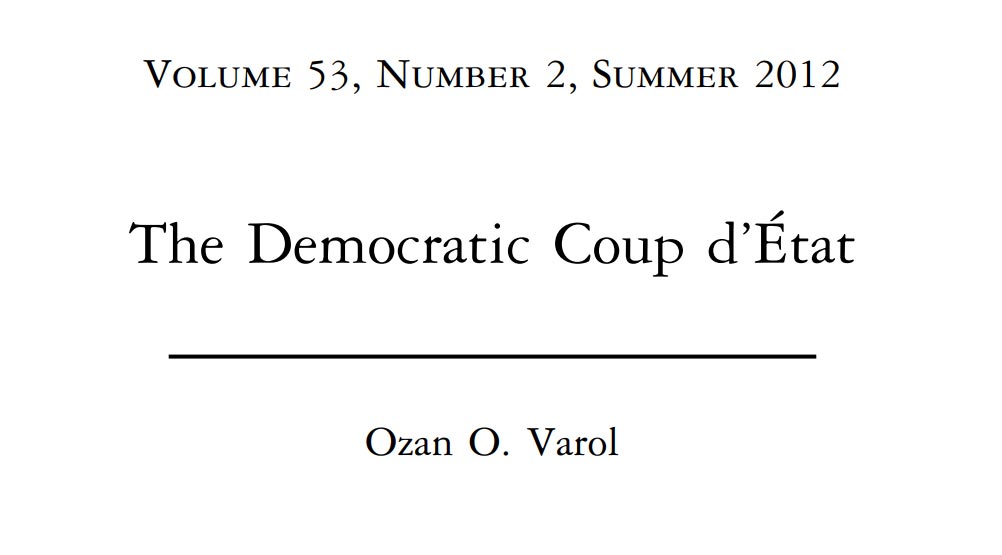
Ozan O. Varol
In this article, "The Democratic Coup d’État", distinguished legal scholar Ozan Varol develops the controversial thesis that sometimes military coups lead to the establishment of democracy and not exclusively to the concentration of power in the hands of oppressive oligarchies or dictators so often associated with coups.
Published by Harvard International Law Journal, 5 October 2017
Download the PDF 